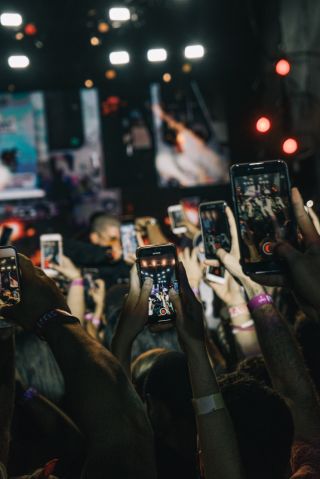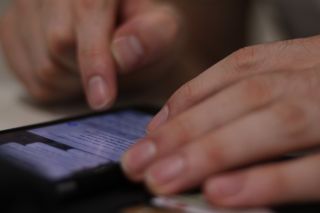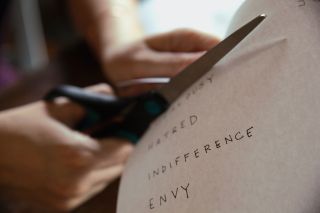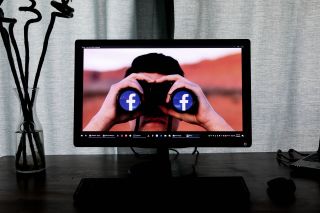Media
Too Much Viewing, Not Enough Listening
Social media can get in the way of a social life.
Posted August 14, 2023 Reviewed by Devon Frye
Key points
- When we substitute textual for verbal communication, we place our relationships on a downward slide.
- Not only is social media questionably “social,” but neither are most social media posts valuable “media.”
- Social media is often not social because it doesn’t generate the fulfillment of a social life.
- If social media is not accentuating your social life, what will its role be?
“My husband and I went out to dinner with another couple, and it was incredible that most of the time they were on their phones,” reports Monica, a wedding planner in Chicago who attended one of my recent conferences on leadership in a time of social disconnection. “My friend posted on Facebook, ‘Having a great time catching up with great friends.’ But she was on her Instagram most of the night. We really weren’t connecting or having a real conversation.”

What has caused us to shift our lives away from developing meaningful social connections and toward sifting through, viewing, analyzing, and evaluating social information? To better understand, let’s consider a disconcertingly deceptive term we associate with a large percentage of the time we while away online: social media.
Most Social Media Is Neither
This is a bold statement. Please allow me to back it up.
First of all, social media is often not social. Why? Because it doesn’t generate the fulfillment of a social life. As I share in my book Screened In: The Art of Living Free in the Digital Age, social media enables the sharing of social information, but rarely does it produce social connection.
When you go to a party, go on a hike with a friend, or eat lunch with someone you care about, these activities call upon your social abilities and fulfill the social dimension of your life: the part of you that needs and desires to relate to other people. For these reasons, these activities are called “social.”
Social media, on the other hand, is a poor substitute. Hunching over a screen typing in information about yourself and broadcasting it to others while reading the information they in turn type into their keypads or keyboards about themselves while also hunched over their screens does not adequately fulfill our basic human need to belong.

Stop Being So Negative
Why not? There are three primary reasons.
First, the mode of communication that social media employs—electronic messaging—possesses, as various studies have found, a “negative affective bias.” As explained by Kristin Byron of Georgia State University, when a person intends for an electronic message to be positive in emotional tone, it is most often interpreted by the receiver as emotionally neutral.
When someone sends an electronic message intended to be emotionally neutral, on the other hand, it is usually perceived by the receiver as being negative in emotional tone. In other words, when we substitute textual for verbal communication, we place our relationships on a downward slide.

Second, social media is a collective game of self-presentation and impression management that stimulates social comparison rather than connection. For this reason, a study by Hanna Krasnova of Humboldt-Universität zu Berlin of 584 Facebook users found that the emotion they most frequently experience is envy.
Third, social media rewards the negativity it stimulates: a New York University study that analyzed over 2.7 million Facebook and Twitter posts found that negative messages are twice as frequently shared or retweeted than positive or neutral messages.
Sound miserable? Only a few decades ago, most would have been incredulous if told this would be our current reality today. Yet our reality it is.
If in doubt, ask Monica. Her distracted friends “made me feel unimportant since they couldn’t even hold a conversation,” she shares sadly. “But they were not the only ones, as I looked up and around the restaurant, I saw a sea of people with their faces buried in their phones.”
All Face and No Book
Not only is social media questionably “social,” but neither are most social media posts “media”—at least not in the sense of reporters reporting the news. The viewing of vacation photos, pictures of a meal soon to be consumed, or a former classmate’s diatribe about politics is not exactly news.

Such sharing of information is not “news” in pure, distilled form, only weak contacts sharing unfiltered details of their lives, 99+ percent of which would be too trivial for anyone trying to report on the state of the world or share information with future generations. In other words, Facebook is too much face and not enough book.
If social media is neither social nor media, what is it? The director of the Center for Internet and Technology Addiction, David Greenfield, put it well when he shared with me that he’s “questioning this idea that social media has anything to do with social contact. I think it’s actually completely the opposite. The only reason why social media exists is really to keep your eyes on screens to sell you stuff. That’s the model.”
Reclaim Your Life
This communication model is arguably taking a toll on our mental health, especially our younger generation. “Social media has gone from ‘a harmless way’ to connect with old friends to something ‘capable of destroying the mental health of a generation of kids,’” argues Washington Post columnist Christine Emba.

If social media is not accentuating your social life and neither is it quality media, what will its role be in your life? Stand up for yourself as the agent of what you consume today.
What to do with all of the offline time you will create? Design some strategies for developing meaningful relationships and consuming healthy, high-quality information about the world around you.




